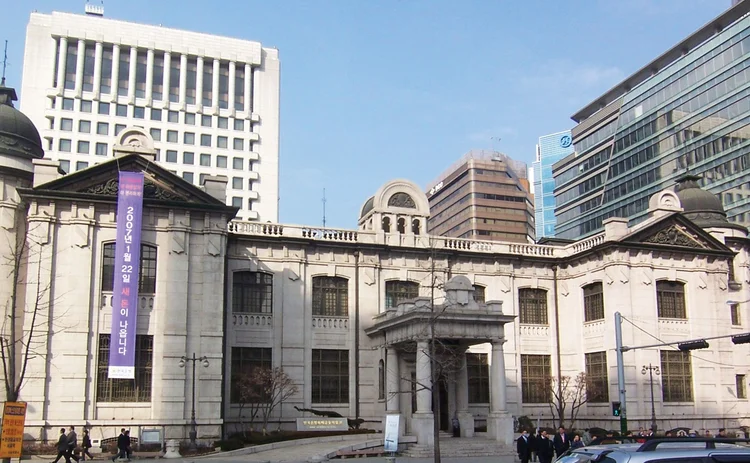
Foreign banks acted as 'buffer' on Korean monetary policy during the crisis
'Buffering effect’ was driven by foreign bank branches with US parent banks

Foreign banks acted as a "buffer" to the monetary policy transmission mechanism in Korea during the financial crisis, according to a working paper published by the Bank of Korea last week.
The impact of foreign banks on monetary policy transmission during the global financial crisis of 2008–2009: Evidence from Korea finds that foreign banks reduced their lending when the Bank of Korea lowered its benchmark interest rate during the downturn.
The authors, Bang Nam Jeon, Hosung Lim and Ji Wu, say
Only users who have a paid subscription or are part of a corporate subscription are able to print or copy content.
To access these options, along with all other subscription benefits, please contact info@centralbanking.com or view our subscription options here: http://subscriptions.centralbanking.com/subscribe
You are currently unable to print this content. Please contact info@centralbanking.com to find out more.
You are currently unable to copy this content. Please contact info@centralbanking.com to find out more.
Copyright Infopro Digital Limited. All rights reserved.
You may share this content using our article tools. Printing this content is for the sole use of the Authorised User (named subscriber), as outlined in our terms and conditions - https://www.infopro-insight.com/terms-conditions/insight-subscriptions/
If you would like to purchase additional rights please email info@centralbanking.com
Copyright Infopro Digital Limited. All rights reserved.
You may share this content using our article tools. Copying this content is for the sole use of the Authorised User (named subscriber), as outlined in our terms and conditions - https://www.infopro-insight.com/terms-conditions/insight-subscriptions/
If you would like to purchase additional rights please email info@centralbanking.com
Most read
- Profit inflation and monetary policy: weighing the evidence
- What is forecasting for? Bernanke and the future of BoE projections
- Cecilia Skingsley on monetary policy tech and a unified ledger







